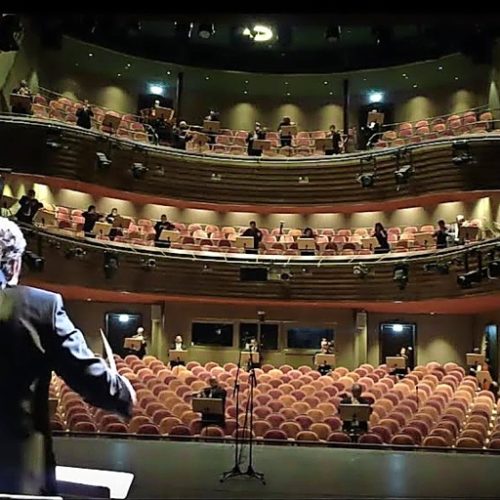Another of Jeff Buckleys’s steeliest riffs, in the style that launched Leonard Cohen’s Hallelujah (below).

Another of Jeff Buckleys’s steeliest riffs, in the style that launched Leonard Cohen’s Hallelujah (below).

The Georgian pianist Elena Dzamashvili has died in Cairo.
She had lived and taught in Egypt since 1991 and was buried in Cairo’s Orthodox church today.

The city of Konstanz is claiming bragging rights for the first full-on concert since Covid.
It has been drummed up by the soprano Gabriela Scherer and her husband Michael Volle, with Barbara Frittoli and Massimo Giordano as Italian guest stars and the full orchestra of Südwestdeutsche Philharmonie on Saturday August 1.
The venue is the Bodensee football ground.
Toi-toi!

The composer and conductor Eric Sweeney died yesterday in Waterford aged 72.
A serialist in his youth, he turned to minimalism in midlife.
He composed three operas, The Invader (2015), The Green One (2016) and Ulysses (2017), and founded the Waterford New Music Week.
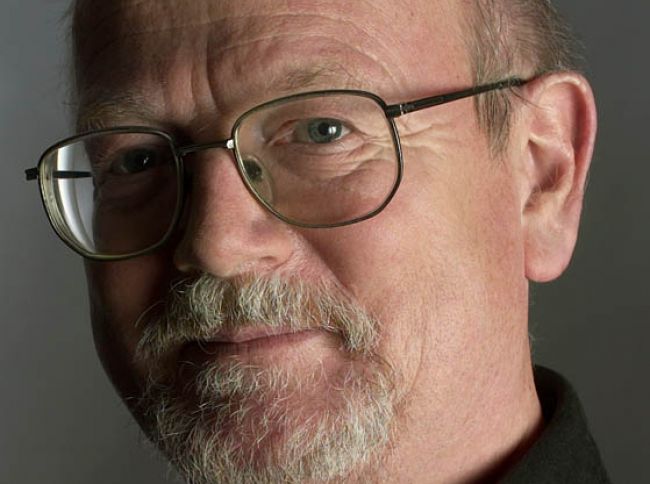
Mark Thompson, the former BBC director general who has been chief executive of the NY Times since 2012, is stepping down.
Thompson, 62, has transformed the Grey Lady into a digital powerhouse with five mllion subscribers, albeit one that has lost much of its editorial authority in dealings with the Wikileaks saga and the Trump regime.
A brass player and lover of Messiaen, Mark will have plenty of interests to occupy his post-Times time.
His replacement is the Times’s COO, Meredith Kopit Levien.

The Polish director Krzysztof Warlikowski who is staging Elektra at the Salzburg Festival has shot his mouth off with an anti-gay rant in the desperately tweet-seeking New York Times.
What he reportedly said was: ‘ The worst public in the opera are these obsessed gays. All these rich guys with nothing to do in their life, just following Anna Netrebko or Jonas Kaufmann on all continents. This is not a real audience for me.’
So what is he doing at the Salzburg Festival?
According to his wiki entry: Warlikowski is gay and was in a long relationship with actor Jacek Poniedziałek but he is currently married to Polish set designer Małgorzata Szczęśniak who is his life partner.
Go figure.

The Scottish singer Annie Ross who carved a space in the heart of New York’s jazz scene has died in the city at 89.
As a kid she appeared with Judy Garland, as an adult with Satchmo and Count Basie.
She had flings with Kenny Clarke and Lenny Bruce. Not many could claim those elusive scalps.
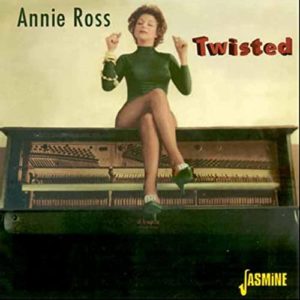
Under pressure from Protestant churches, the Berlin Senate has voted to amend a ban on choral singing up to the end of October.
The Senate will now permit choirs to rehearse and perform under the ‘hygiene and infection protection standards set by the Senate administration.’ These standards have not hyet been published.
In neighbouring Brandenburg state singers must stand at least 1.5 meters from each other.
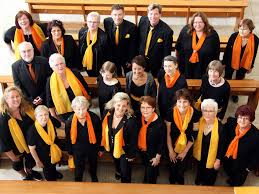
Crop circles? Visitors from outer space? Divine intervention?

The unmistakable visage of Ludwig Van Beethoven has appeared in a field in the village of Utting am Ammersee. Here’s how:
The video is from Russian state TV. Local report here
We have received notice of the death of Francesco Esposito, a young leader in Portuguese musicology. No cause is yet known.
It was with great dismay that we received the news of Francesco Esposito’s passing at the Departamento de Ciências Musicais, Universidade Nova de Lisboa.
Francesco Esposito was a distinguished musicologist who had often collaborated with our Department, and a dear friend. We shall keep a vivid memory of him as a kind person and an outstanding scholar endowed with great sensibility and intellectual energy. His body of work on musical life in 19th-century Portugal remains a remarkable achievement for which he will be remembered by future generations. Francesco will be greatly missed by the entire Portuguese musicological community and by his many Portuguese friends and colleagues.
On behalf of all DCM lecturers and students, I extend my deepest condolences and sympathy to Francesco’s family and friends.
Paulo Ferreira de Castro
Coordenador Executivo
Departamento de Ciências Musicais
Faculdade de Ciências Sociais e Humanas – NOVA FCSH
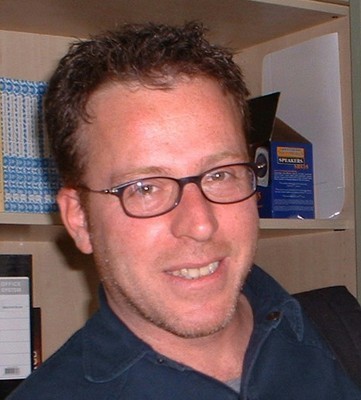
We have received the following bland and equivocal notice from Sheffield Cathedral in the north of England:

For some years the Dean and Chapter have been looking carefully at the music offer of Sheffield Cathedral. They have come to the conclusion that there needs to be significant change. This is in order to create a Music Department and Choir ready for the exciting future of the mixed urban community in which we live and work.
With the Diocesan Bishop, Chapter are appointing a new Canon Precentor in August, responsible for Cathedral worship and music. They hope this will bring increased creativity and stability.
Following a review of the Music Department in 2019, Sheffield Cathedral Chapter has decided that a completely fresh start is needed. As a result, Chapter concluded this is the right time to close the current Cathedral Choir.
This decision has not been easy because it will directly impact several colleagues and indirectly impact us all in our close-knit community. However, we believe this is in the best interests of the long-term mission of the Cathedral.
The Canon Precentor will lead the recruitment of a new music team and the development of a fresh vision for our worship. For some time, Chapter has been considering a new model for Anglican choral life here, with a renewed ambition for engagement and inclusion. They recognise that this will require flexibility, imagination and experiment.
Chapter is committed to retaining the distinctive choral life of an Anglican cathedral, drawing fully on our long heritage of music-making. They look forward with working with our partners throughout our City and Diocese to make this renewed vision a reality under God.
The Incorporated Society of Musicians has produced an online guide to risk management for coronavirus in performance and teaching spaces.
The purpose… is to provide an overview of current scientific knowledge concerning COVID-19 transmission and to detail examples of guidance being followed by music ensembles who have resumed (albeit largely limited) rehearsal and performance activities.
It’s coherent, comprehensible, comprehensive and up-to-the-minute.
Above all, it is sensible.
In regards to playing woodwind and brass instruments and singing, recent studies have shown that, despite the minimal amount of air movement in the vicinity of the instrument and mouth, aerosols are emitted. Room ventilation is an important way to help minimise the risk of transmission. Studies have shown that better ventilation of spaces substantially reduces the airborne time of respiratory droplets and aerosols. Further research on the aerosol production on different instruments and singers is currently being undertaken, and this information will help to answer questions about the safe resumption of work for musicians and those working in the music industry.
You can read the report here first.
